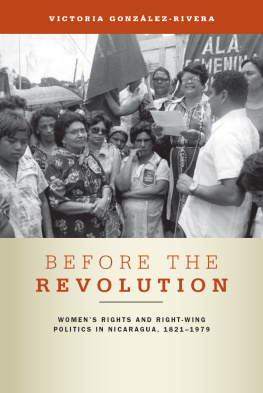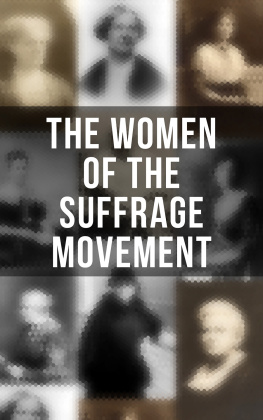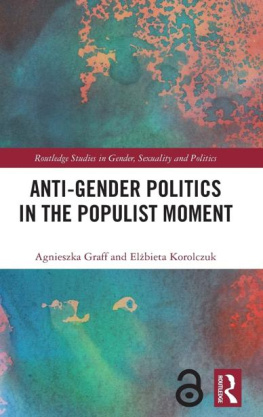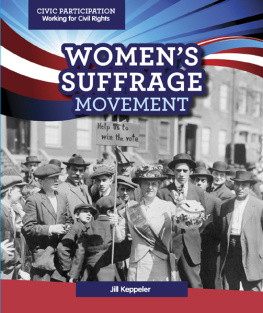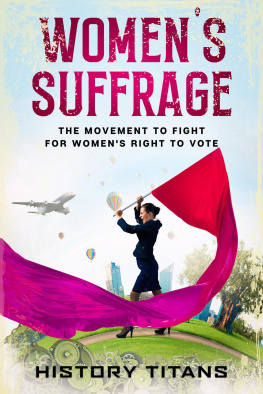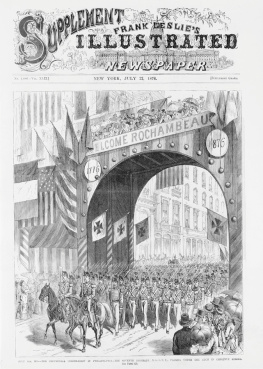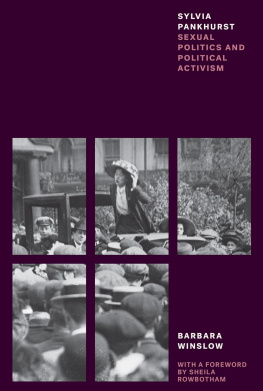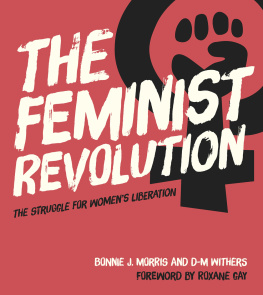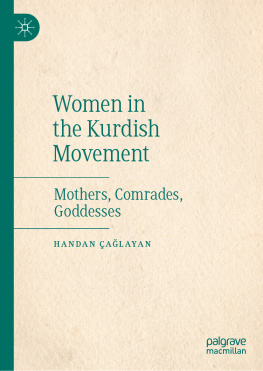BEFORE THE REVOLUTION
VICTORIA GONZLEZ-RIVERA
BEFORE THE REVOLUTION
WOMENS RIGHTS AND RIGHT-WING
POLITICS IN NICARAGUA, 18211979
THE PENNSYLVANIA STATE UNIVERSITY PRESS
UNIVERSITY PARK, PENNSYLVANIA
Lyrics by Carlos Meja Godoy in chapter 6
reproduced by permission.
Library of Congress Cataloging-in-Publication Data
Gonzalez-Rivera, Victoria, 1969
Before the revolution : womens rights and right-wing politics
in Nicaragua, 18211979 / Victoria Gonzalez-Rivera.
p. cm.
Includes bibliographical references and index.
Summary: An exploration of the history of feminist activism
in Nicaragua. Looks at the role of women in conservative
politics and the Somoza regimeProvided by publisher.
ISBN 978-0-271-04870-3 (cloth : alk. paper)
1. WomenPolitical activityNicaraguaHistory.
2. WomenSuffrageNicaraguaHistory.
3. FeminismNicaraguaHistory.
4. Womens rightNicaraguaHistory.
5. NicaraguaPolitics and government.
I. Title.
HQ1236.5.N5G66 2011
305.42097285dc23
2011019665
Copyright 2011 The Pennsylvania State University
All rights reserved
Printed in the United States of America
Published by The Pennsylvania State University Press,
University Park, PA 168021003
The Pennsylvania State University Press is a member of
the Association of American University Presses.
It is the policy of The Pennsylvania State University
Press to use acid-free paper. Publications on uncoated
stock satisfy the minimum requirements of American
National Standard for Information Sciences
Permanence of Paper for Printed Library Material,
ANSI Z39.481992.
This book is printed on Natures Natural,
which contains 50% pos-consumer waste.
I DEDICATE THIS BOOK
to my mother, Kathy Hoyt, my aunt, Victoria Morales,
and to Dora and Jeronima Ubeda.
CONTENTS
ILLUSTRATIONS
Juanita Molina de Fromen
Salvadora Debayle de Somoza with Mara Elena de Porras and other Ala leaders
Luis H. Debayle
Guillermo Sevilla Sacasa
Anastasio Somoza Garca surrounded by women
Luis Somoza Debayle talking with women
Luis Somoza Debayle surrounded by women with Anastasio Somoza Debayle
Liberal Party Propaganda House for Luis Somoza Debayle
Ala Femenina from La Concepcin
Liberal Women from Muy Muy, Matagalpa
Irma Guerrero Chavarra and Guillermo Sevilla Sacasa
Event honoring Carmen Lara de Borgen
Mary Coco Maltez de Callejas
Batahola Loves Somoza
Nicolasa Sevilla
Anastasio Somoza Debayle with the wives of army officers
PREFACE
We cannot live without stories. Our need for stories of our lives is so huge, so intense, so fundamental, that we would lose our humanity if we stopped trying to tell stories of who we think we are. And even more important, if we stopped wanting to listen to each others stories.
Ruth Behar, Translated Woman
The story I tell in this book is a heartbreaker. I document the rise of first-wave feminism in Nicaragua during the first decades of the twentieth century and the movements co-optation by a U.S.backed dictator. I then address the reasons why so many working- and middle-class women in this small and poor country felt compelled to support a right-wing dictatorship over the course of almost half a century. I tell how, believing itself to be the rebel child of the leftist Sandinista patriarchs, second-wave feminism developed in Nicaragua in the early 1990s completely unaware of its foremothers existence. And how, in 1996, with the heirs of the Liberal right-wing dictatorship back in power, a new Liberal womens movement emerged, with no memory of women ever organizing on behalf of the Somozas. I couldnt have made this story up even if Id tried.
The interpretation put forth in this book seeks to replace the previous one, which held that Nicaraguan women were not active in politics until the late 1970s, when they mobilized, often as mothers, to support the Sandinista revolution, which brought an end to the Somoza dictatorship. Previous scholars had also held that Nicaraguan women first embraced feminism in the early 1990s, and that, before then, they had simply suffered at the hands of their men as sufridas.
Before the Revolution tells an entirely different story. Many of the arguments it presents, which constitute my particular take on Nicaraguan womens history, are now, thirty years after the Somozas defeat, largely accepted as what happened by scholars and activists in the United States and Nicaragua alike. Indeed, the story I tell has become a somewhat familiar one. I have published (in English and Spanish) many of my general arguments in several different articles and book chapters and have presented my work at over a dozen conferences throughout the world. But fifteen years ago, when I first started to publicly share my conclusions on the history of Nicaraguan women, they were considered sheer heresy, counterintuitive at best. In the next few pages, I outline some of the ways in which my research findings were first received, both in Nicaragua and the United States. I pay particular attention to the reasons why my audiences were dissatisfied with what they heard in my presentations.
Reactions to My Research
Although today it is much in vogue among feminists and the leftist intelligentsia to criticize the Sandinistas, back in 1994, it was still taboo in many circles. It was even worse to humanize anyone who had ties to the Somozas. Thus my conclusions at first elicited some highly negative reactions, particularly among nonfeminist Sandinista women and men. Some Nicaraguans were upset with me because I was arguing that feminism was not a foreign import. Others were upset because I was taking credit away from the Sandinistas for awakening women to their inner power. Still others were outraged that I was making the Somoza dictatorship palatable by ignoring the fact that working-class Somocista women had either been duped or coerced into Somocismo. And some were both confused and saddened: they conceded that many women had supported the Somozas, but could not understand why that was important. Wasnt their story as Sandinista revolutionaries more meaningful? What kind of scholar would choose to write about evil people? My father, in fact a devout anti-Somocista activist, died without ever fully understanding why, among all the topics I could have picked to study, I picked this one.
Some additional issues were at play, especiallythough not onlyin the United States. It seemed to me that some U.S. activists and scholars could not get beyond the stereotypes of the mujer sufrida and the macho man, stereotypes that are often embraced by Nicaraguans themselves even today. According to these stereotypes, Nicaraguan men are and traditionally have been more sexist than other (white) men. Therefore, it follows that Nicaraguan women are and traditionally have been more oppressed than other (white) women, that they are and were, indeed, mujeres sufridas. In the minds of many, this stereotype came to replace the reality of Nicaraguan first-wave feminists who demanded the right to vote, the right to an education, and the right to choose motherhood.
Not surprisingly, most of those who promoted the stereotypes of the overly sexist Nicaraguan man and the superoppressed Nicaraguan woman did so in good faith. Apparently unaware of the international nature of first-wave feminism, they believed that the collective struggle against sexist oppression could only have originated in Europe and the United States. Most important, however, they had not done the extensive archival research or asked the sorts of questions that would have elicited historically accurate information on this topic.

